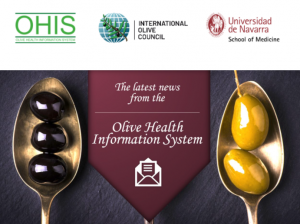 Although hydroxytyrosol is considered the most potent olive oil antioxidant, which encouraged the investigations on its cardioprotective potential, oleocanthal is described as the major Extra Virgin Olive Oil (EVOO) phenolic compound with functional and health benefits, including anti-inflammatory, chemotherapeutic, neuroprotective, and antirheumatic.
Although hydroxytyrosol is considered the most potent olive oil antioxidant, which encouraged the investigations on its cardioprotective potential, oleocanthal is described as the major Extra Virgin Olive Oil (EVOO) phenolic compound with functional and health benefits, including anti-inflammatory, chemotherapeutic, neuroprotective, and antirheumatic.
The oleocanthal concentration in EVOO can vary from as little as 0.2 mg/kg to as high as 498 mg/kg. Such high variation may be due to several factors, including the method of phenolic extraction and quantification, geographic region of olive growth, olive tree cultivar, agricultural techniques applied to cultivate olives, olive maturity, processing of the olives to oil, storage of oil, and domestic heat application to oil.
Interestingly, although most of the olive oil phenolic compounds are degraded upon heating during cooking, it was verified that oleocanthal is relatively stable upon heating when it is initially present in a considerable amount in EVOO. Furthermore, many in vitro and in vivo studies have demonstrated that the EVOO oleocanthal positively alters inflammation and oxidative stress and has beneficial effects on markers of neurodegenerative diseases, cancer, and rheumatic pathologies. Those results may corroborate the hypothesis that a lower incidence of inflammatory-related diseases among the Mediterranean population is partly due to the consumption of EVOO phenolic components in olive oil and a lower intake of pro-inflammatory animal-derived fats.
With the growing incidence of age- and lifestyle-related diseases, the current data indicated that the administration of EVOO rich in oleocanthal may be helpful in the prevention and treatment of different pathologies with an inflammatory component.











